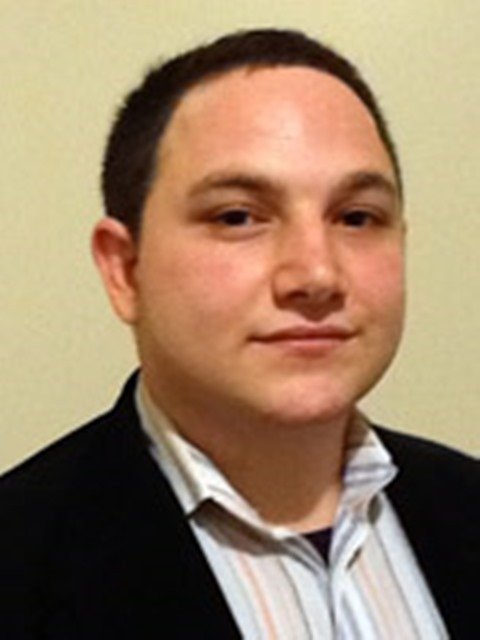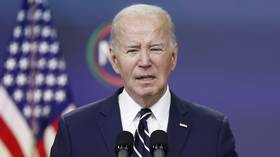Occupy Bangkok’s quest to de-Thaksinize Thailand
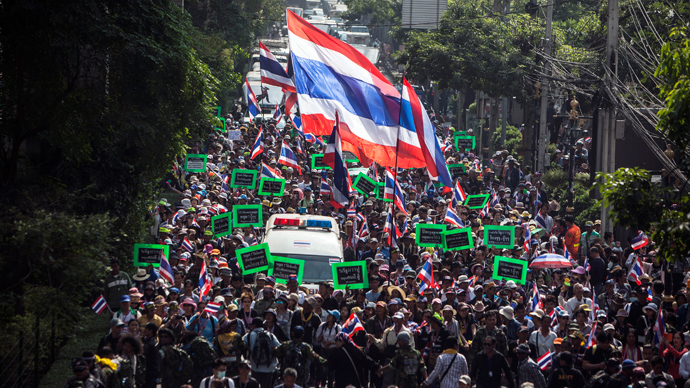
As hundreds of thousands of protesters fill the streets of Bangkok demanding the ouster of the Shinawatra government, the Western media continue their one-sided portrayal of events in Thailand, misrepresenting the protests as anti-democratic.
On January 13, 2014, the largest Thai protests in decades officially came together under the banner ‘Occupy Bangkok’. Demanding an end to the regime of Thaksin and Yingluck Shinawatra, the protesters, who come from all social classes and all walks of life, have essentially brought the Bangkok metropolis to a standstill.
Filling the major boulevards and public spaces, Occupy Bangkok has come to represent more than a mere political uprising, it is a social movement aiming to rid the country of its corrupt leadership and restore some semblance of true democracy to Thailand.
Of course, the Western corporate media puts forward a very different narrative. Rather than a legitimate struggle against the current government, Occupy Bangkok is being framed as an assault on democracy by “royalists” intent upon restoring the traditional elite to power.
The disingenuousness of such an absurd narrative aside, the international media portrayal of events in Thailand is instructive, as it demonstrates unequivocally the way in which finance capital is attempting to use every weapon at its disposal to crush a burgeoning social movement.
Corporate media and the Thaksin mythology
In covering the Occupy Bangkok movement, some of the most prominent media outlets have engaged in a deliberate misinformation campaign designed to portray Thaksin Shinawatra, his sister and proxy Yingluck (the present prime minister), and their supporters as “defenders of democracy.”
In a TIME magazine article from Thursday January 16, 2014 deceptively titled ‘Bangkok Shutdown: Yingluck Supporters Prepare to Fight for Democracy’ the author writes, “Thaksin-backed parties have won the last five elections based upon huge support in Thailand’s rural northeast, where populist policies are credited for bringing millions out of poverty. However, Thaksin remains anathema to royalists and the traditional elite of Bangkok and the southern provinces, who accuse him of flagrant vote-buying…The opposition wants an unelected people’s council to replace the democratically chosen legislature for a period of up to two years, in order to usher through a series of reforms designed to permanently nullify Thaksin’s power.”
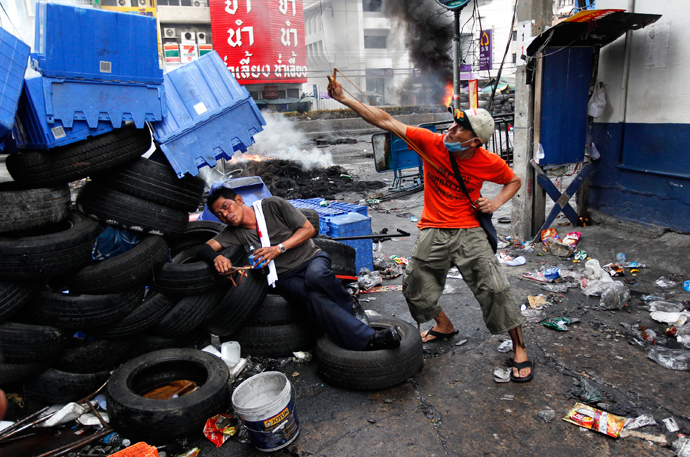
The article attempts to demonize the anti-Thaksin opposition by association with ‘royalists’ and ‘traditional elite’ in order to create the illusion that, rather than a genuine social movement, the protests are counter-revolutionary and reactionary in nature. Nothing could be further from the truth.
In reality, the opposition seeks to rid itself and the country of a political machine financed and controlled from abroad. Naturally the opposition, like political opposition in any country, seeks to gain political power. However, this in no way negates the legitimacy of their grievances or of those of the masses on the streets.
One of the principal talking points in the dominant Western media narrative has been that the Thaksin/Yingluck Shinawatra government is pro-democracy because it insists upon elections in the near term as a means of “resolving the crisis.” This is an utterly laughable notion considering that, by the party’s own reckoning, it is merely the proxy of Thaksin, who runs the day-to-day operations from abroad after having fled the country rather than face corruption and abuse of power charges.
As the New York Times wrote in January 2013, “For the past year-and-a-half, by the party’s own admission, the most important political decisions in this country of 65 million people have been made from abroad, by a former prime minister who has been in self-imposed exile since 2008 to escape corruption charges. The country’s most famous fugitive, Thaksin Shinawatra, circles the globe in his private jet, chatting with ministers over his dozen cellphones, texting over various social media platforms and reading government documents emailed to him from civil servants, party officials say.”
For the media to portray pro-Thaksin forces as ‘defenders of democracy’ is both cynical and hypocritical. The notion that a regime led by a wanted fugitive pulling the strings from abroad could in any way be ‘democratic’ is an insult to the word democracy. If democracy is meant to be rule by the people and for the people, then by definition the Shinawatra government is much more akin to a corporate dictatorship than it is to any semblance of democracy.
While much of the Western media attempts to paint Thaksin as the victim, it is essential to ask precisely why he is regarded as a criminal by the protesters and many in Thailand and around the world. More than simple corruption, Thaksin is responsible for egregious violations of human rights, participation and collaboration in illegal wars, and orchestrating atrocities unparalleled in recent Thai history.
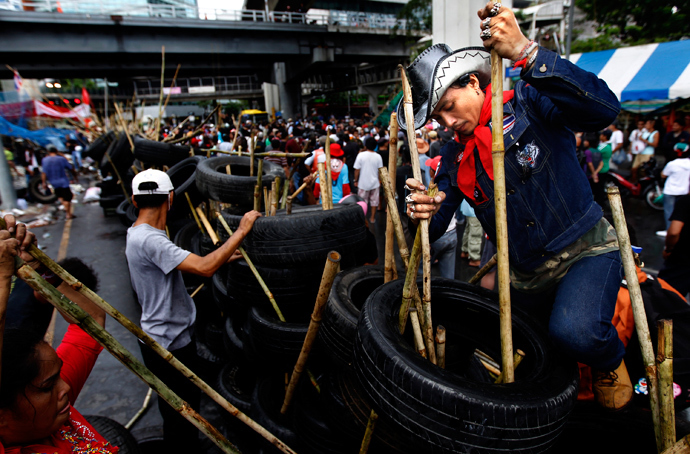
The real Thaksin
In examining billionaire Thaksin’s history, one must first understand the murky swamp of Western interests from which he emerged. As a key adviser to the private equity firm Carlyle Group in the late 1990s, Thaksin rubbed elbows with the likes of George Bush, James Baker, and other notorious neocons and US war criminals. Acting as an intermediary between finance capital and their interests in Southeast Asia, Thaksin positioned himself as the point person for the neocon establishment and its soon-to-be president George W Bush. Using his vast wealth and political connections, Thaksin established himself as a political force and, by 2001, was elected prime minister.
As PM, Thaksin oversaw the selling off of the Thai state oil company to foreign interests. Despite fierce opposition from nationalists and opponents of predatory privatization, Thaksin “pledged to push privatization forward to reduce the government’s debt and budget deficit.”
So from the earliest stages of his political career, Thaksin was working in the interests of foreign financiers and investors, as well as the International Monetary Fund. As Thailand was still reeling from the economic crisis of the late 1990s, Thaksin was busy enriching his cronies at the expense of ordinary Thai people. However, his service to Bush & Co. did not stop there.
Against the wishes of the overwhelming majority of Thai citizens, in 2003 Thaksin committed troops to the imperialist war waged by the United States against Iraq. Undoubtedly, Thaksin’s friends in Washington rejoiced at this move, as we can be sure they also rejoiced when he allowed Thailand to be used as a host for the infamous ‘black sites’ utilized by the CIA for their rendition and torture program. In that same year and in subsequent years, Thaksin oversaw the murders of thousands and the smashing of political opposition and dissent.
As Amnesty International reported, many prominent human rights activists and political dissidents were assassinated or disappeared under Thaksin’s brutal corporate regime. Moreover, such attacks did not stop with his ouster in 2006. As recently as August 2013, political opponents and critics of Thaksin’s regime have continued to be beaten and murdered in what can only be seen as politically motivated assassinations.

It must also be noted that the Thaksin regime is supported by the so called ‘Red Shirts’ – political supporters who provide the cover for armed terrorist actions designed to intimidate opponents of his government. Many instances of such terrorist actions have been documented, including the infamous 2010 violence instigated by armed mercenaries dressed as Red Shirts, who attacked military forces, instigating a firefight that led to the deaths of 92 people. In its report (pg. 62) on the incident, Human Rights Watch noted that:
“As the army attempted to move on the camp, they were confronted by well-armed men who fired M16 and AK-47 assault rifles at them, particularly at the Khok Wua intersection on Rajdamnoen Road. They also fired grenades from M79s and threw M67 hand grenades at the soldiers. News footage and videos taken by protesters and tourists show several soldiers lying unconscious and bleeding on the ground, as well as armed men operating with a high degree of coordination and military skills.”
That the Red Shirts were accompanied by such highly trained paramilitary fighters in 2010 raises very serious questions – questions that have only been further raised by violent incidents directed towards Occupy Bangkok protesters in recent days. One particularly shocking act of violence took place on January 17 when a grenade or small bomb was thrown at group of protesters which included one of the protest leaders, Suthep Thuangsuban. Thirty-eight people were injured in the explosion, which undeniably is an act of political violence and terrorism.
Additionally, the Bangkok Post reported that Red Shirt militias were stockpiling weapons in preparation for violent clashes with peaceful protesters, yet another example of the kind of intimidation used by the pro-Thaksin forces. Political leaders are always held to account for the actions of their supporters, so too should Thaksin and his proxy government be held to account for the crimes of his armed thugs.
Political observers around the world have turned their gaze to Bangkok in recent weeks, watching this historic political and social movement strive to uproot the corrupt and criminal Shinawatra regime. Despite the distortions from Western media, the people of Thailand and their supporters the world over recognize the significance of this moment, as despite the money and muscle provided by finance capital Thaksin’s days as unelected dictator might be numbered.
The statements, views and opinions expressed in this column are solely those of the author and do not necessarily represent those of RT.
The statements, views and opinions expressed in this column are solely those of the author and do not necessarily represent those of RT.
